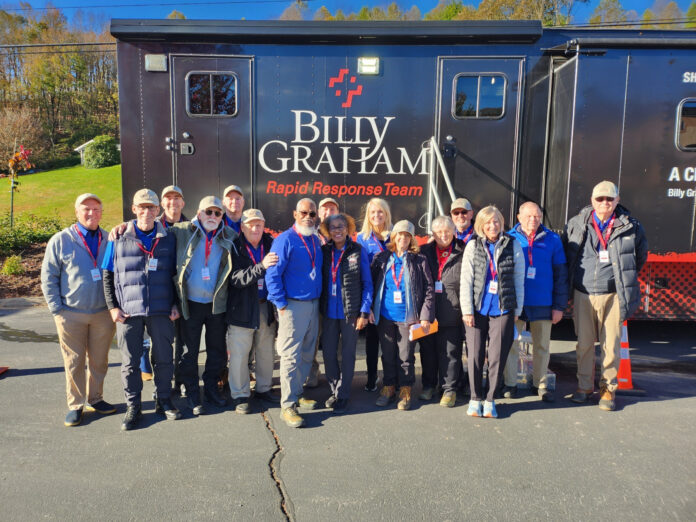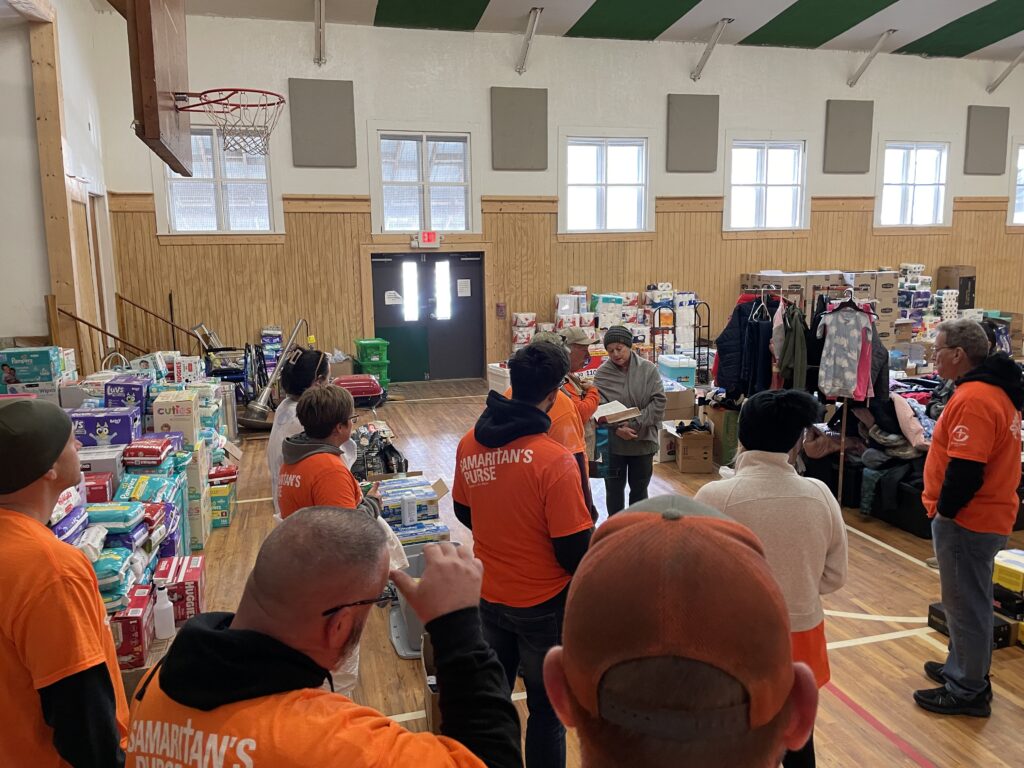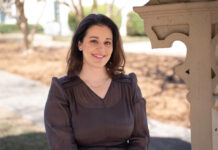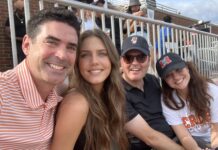
Dr. David Hollar, associate professor in the Department of Community Medicine in Mercer University’s School of Medicine, had the opportunity to spend a week volunteering as a lay chaplain serving those impacted by Hurricane Helene.
Hollar volunteered as a part of the Billy Graham Rapid Response Team from Oct. 13-20, serving alongside the Samaritan’s Purse disaster relief team in Boone, North Carolina, which experienced extreme flooding, landslides and sinkholes as a result of the hurricane. Boone is one of five locations that Samaritan’s Purse has responded to following Hurricane Helene’s landfall in North Carolina on Sept. 27 and has drawn over 600 volunteers.
As one of 15 lay chaplains on the team, Hollar provided spiritual and emotional support to those impacted by the hurricane. Alongside Samaritan’s Purse volunteers, he also helped homeowners find resources available to them in the community.
Hollar began working with the Billy Graham Rapid Response Team over 10 years ago and has assisted with several other hurricane relief efforts throughout the South, including Hurricanes Matthew (2016), Harvey (2017), Michael (2018) and Laura (2020). Hollar had volunteered with Samaritan’s Purse prior to becoming a lay chaplain, but he became interested in the rapid response team and felt motivated to volunteer.
“I’m not sure exactly what really got me to take the step to go ahead with it,” he said. “But I think it’s the fact that I saw a lot of people suffering through all types of incidents, and I thought it would be a good endeavor to be involved in.”
The lay chaplains assisted Samaritan’s Purse volunteer teams during their site visits, led prayers in the morning, traveled with volunteers to different counties and talked with homeowners in the communities. A typical day would last from 9 a.m. to 4 p.m., when they would return to the church in Boone.
“It’s mostly volunteers who come in, including the certified contractors, who volunteer their time to lead teams and help them to work in people’s homes, to tear out drywall that’s been molded and water damaged, to tarp roofs, to cut down trees,” Hollar said.

Hollar said the damage he encountered was similar to what he has seen during his past deployments. Some communities had already begun the cleanup process by the time volunteers arrived, but there were still areas and buildings with significant water damage, such as a church that had to have all its carpet removed and a family that lost their home and pet horses. Hollar said this experience was unique because many of the sites were in mountainous areas as opposed to coastal regions, where hurricanes typically land, which made traveling more difficult.
“We kind of started to see the communities that were being impacted. A lot of roads were washed out from rivers where the rivers had risen up. And so, a lot of the roads in certain areas were down to one lane,” he said. “When you went into town, highway patrol was there, and they were pretty much blocking westward traffic because they had all kinds of bulldozers and stuff trying to shore up what was left of the highway for about a couple of miles. So all the traffic was lined up and could only go through at the top of every hour.”
During his time in North Carolina, much like his other deployments, Hollar saw the hardships people faced in their everyday lives be put on pause after natural disasters.
“What we find on a lot of these deployments, and what we’re taught, is that in about 70% of the cases, the people are dealing with other things, and a hurricane is just one more thing that’s impacted their lives,” Hollar said.
But through the power of community and service, Hollar was inspired by the way communities came together. He believes that lay chaplains play a key role in giving communities support and comfort in a time of uncertainty.
“I think you need to have people who have some level of training to go in and listen with a servant’s heart to see where these people are, and to try to help them spiritually, and also to try to direct them towards resources that are available.”
Hollar’s service is something he cares deeply about. His passion for faith is what guides him to use his time serving communities in need.
“We just want to show people that Jesus Christ is Lord and Savior, and that he’s here working in our communities, and we’re just kind of the vessels of trying to help that work to happen and that people can see that happening through the work of Samaritan’s Purse and the Billy Graham ministries. So, we just want to try to bring as much hope as we can to as many people as possible.”









